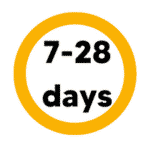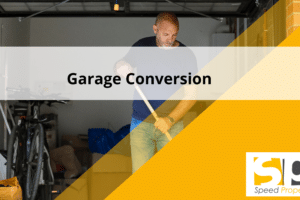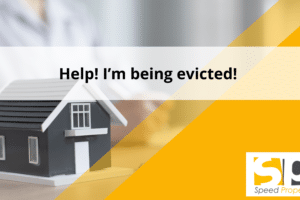Selling a house with a mortgage: all you need to know
Selling a house with a mortgage
Selling a house with a mortgage can be a daunting prospect. There are a lot of things to consider, from dealing with the bank to finding the right buyer. But with some careful planning and preparation, it is possible to sell your house while still paying off your mortgage. In this article, we will explore everything you need to know about selling a house with a mortgage, including the pros and cons, important considerations, and tips to help you navigate the process smoothly.
Whether you’re selling due to a job relocation, family reasons, or simply because you want to move on to a new chapter in your life, we’ve got you covered. So, let’s dive in and explore the world of selling a house with a mortgage.



Tips for Selling Your House with an Existing Mortgage
Check your mortgage agreement: Before putting your house on the market, review your mortgage agreement to understand any penalties or fees that may apply if you sell the house before the end of the mortgage term.
Determine your property’s value: Have your property valued by an estate agent or property valuer to get a realistic idea of the price range you should be aiming for when selling your house.
Keep up with mortgage payments: Make sure you stay up to date with your mortgage payments while your house is on the market. Missing payments could lead to penalties and may negatively impact your credit score.
Prepare your house for sale: Make sure your property is in good condition for sale. This means making repairs, decluttering and cleaning, and staging the house to showcase its best features.
Consider working with an estate agent: A good estate agent can help you navigate the selling process and negotiate with potential buyers on your behalf.
Market your property effectively: Use a mix of traditional and digital marketing methods to ensure your property gets the exposure it needs to attract potential buyers.
Be transparent about the current mortgage amount: Disclose any outstanding mortgage on the property to potential buyers. This will help avoid any issues during the sale process.
Know your options for paying off existing mortgage deal and off the mortgage: Understand your options for paying off the mortgage, such as selling the property for enough to cover the outstanding balance, transferring the mortgage to a new property, or paying off the mortgage from savings.
Consider incentives: Offering incentives to potential buyers, such as covering closing costs or providing a decorating allowance, can make your property more attractive and help speed up the selling process.
Be patient: Selling a house can be a lengthy process, especially with a mortgage involved. Be prepared to be patient and work with your estate agent to get the best possible outcome for your situation.
Understanding the Process of Selling a House with a Mortgage
First, it’s important to determine how much equity you have in the property, as this will impact your ability to sell. You’ll also need to work with your lender to get a payoff figure for the mortgage repayment, and factor in any early repayment charges. Once you’ve determined your financial situation, you’ll need to work with a solicitor or conveyancer to handle the legal aspects of the sale, including transferring ownership and paying off the mortgage. It’s also important to be aware of any potential tax implications, such as capital gains tax, that may arise from the sale. Overall, understanding the process of selling a house with a mortgage in England is crucial for a successful sale.
The Pros and Cons of Selling Your House with a Mortgage
There are several pros and cons to selling your house with a mortgage in the UK.
Pros:
-You can sell your house even if you still owe a lump sum of money on the mortgage.
You can use the proceeds from the sale to pay off your mortgage and any other outstanding debts.
You may be able to sell your house for a higher price than what you owe on the mortgage, resulting in a profit.
You have the flexibility to choose when to sell your house, even if you are still paying off the mortgage.
Cons:
You may have to pay an early repayment charge to your lender if you sell your house before the end of the mortgage loan’ term.
You may not be able to sell your house for as much as you owe on the mortgage, resulting in a mortgage shortfall, that you will need to cover.
If you are in negative equity, meaning you owe more on the mortgage than the new house itself is worth, you may need to bring money to the table to pay off the mortgage.



How to Sell Your House with a Mortgage: A Step-by-Step Guide
Here is a step-by-step process for selling a house with a mortgage in England:
Determine the remaining mortgage balance: Before you can sell your home, you need to know how much is left on your mortgage. You can get this information from your mortgage provider.
Get an accurate valuation of your property: It’s essential to have an accurate valuation of your home to determine the correct asking price. You can use a professional valuation service or an online property valuation tool.
Hire an estate agent: To sell your home, you need to hire an agent who will help you with the process. The estate agent will list your home on popular property portals, handle inquiries, and arrange viewings.
Prepare your home for sale: Before putting your home on the market, it’s important to make it as attractive as possible to potential buyers. This may involve decluttering, cleaning, and staging your home.
Find a buyer: Once your home is listed, you’ll start receiving inquiries and requests for viewings. You’ll need to negotiate with potential buyers and find the right person to purchase your property.
Hire a solicitor: Once you’ve found a buyer, you’ll need to hire a solicitor to handle the legal aspects of the sale. The solicitor will handle the transfer of ownership and ensure that all legal requirements are met.
Pay off your mortgage: When the sale is complete, you’ll need to pay off the outstanding balance on your mortgage. Your solicitor will handle the transfer of funds to your new mortgage provider.
Complete the sale: After the existing mortgage loan is paid off, the solicitor will transfer ownership of the property to the buyer, and the sale will be complete.
What Happens to Your Mortgage When You Sell Your House?
When you sell a house, the proceeds from the sale are first used to pay off any outstanding mortgage balance on the property. The lender will typically have a lien on the property, which means they have a legal right to the property until the mortgage debt is paid off.
After the mortgage is paid off, any remaining proceeds from the sale will go to the seller. If the proceeds from short sale are not enough to pay off the mortgage in full, the seller will need to make up the difference out of pocket.
It’s also worth noting that there may be prepayment penalties or other fees associated with paying off a mortgage early.
Sellers should review their mortgage agreement or speak with their lender to understand any potential costs, interest rates or fees associated with paying off the mortgage early through the sale of the property.
Common Mistakes to Avoid When Selling a House with a Mortgage
Negative equity occurs when the value of the property falls below the mortgage balance. In other words, you owe more on your mortgage than your house is worth. If you find yourself in this situation, it’s essential to understand your options before putting your property on the market.
One option is to sell your house and pay the shortfall from your own pocket. However, this may not be feasible for many homeowners who cannot afford to pay the difference. Another option is to negotiate with your mortgage lender to write off the shortfall.
This is legal action is called a mortgage write-off, and it means that the lender agrees to accept less than what you owe them. However, not all lenders offer this option, and it may have a negative impact on your credit score.
Another option is to sell your house through a quick sale company that specializes in buying problem properties. These companies may offer to buy your property for less than its market value, but it can help you get out of your situation quickly.
It’s important to weigh the pros and cons of each option before making a decision. While selling your house with mortgage debts and negative equity can be challenging, understanding your options can help you find the best solution for your situation.
Frequently Asked Questions
Is selling house with a mortgage and porting a mortgage the same thing?
No, selling a house with a mortgage and porting a mortgage are not the same thing. Selling a house with a mortgage means that you sell your house before your mortgage is paid off. Porting a mortgage means that you transfer your existing mortgage to a new property when you move house. So, if you sell your current property and buy a new one, you may be able to take your existing mortgage with you to the new property, but this is not the same as selling a house with a mortgage.
Can I sell my house if I still have a mortgage on it?
Yes, you can sell your house if you still have a mortgage on it in England. However, you will need to pay off your mortgage balance from the sale proceeds before transferring the property to the buyer. If the sale proceeds are not enough to cover the outstanding payments, you will need to make up the difference out of your own funds. It is important to speak with your mortgage lender to ensure that you understand the terms of your mortgage and any potential fees or penalties for early repayment.
Will I be charged a penalty for selling my house before the mortgage term is up?
Some mortgage lenders may charge an early repayment penalty if you sell your house before the mortgage term is up, while others may not. It’s important to check your mortgage agreement carefully and speak to your lender to understand any potential penalties or fees associated with early repayment. If you are charged a penalty, it can be a percentage of the remaining mortgage balance, so it’s important to factor that into your decision-making process when considering selling your house before the mortgage term is up.
How much will it cost to pay off my mortgage early?
In the UK, the cost of paying off your mortgage early can vary depending on your lender and the terms of your mortgage agreement. Some lenders may charge an early repayment fee or an exit fee if you pay off your mortgage before the end of the term. The amount of these fees can vary, but typically range from 1% to 5% of the mortgage balance. Additionally, you may be required to pay a higher interest rate or incur other fees if you break the terms of your mortgage agreement. It is important to review your mortgage contract and speak with your lender to fully understand the costs associated with paying off your mortgage early.
Can I transfer my mortgage to the new owner of the house?
In the UK, it is generally not possible to transfer your mortgage to the new owner of the house. The new owner would need to apply for a new mortgage in their own name, which would be based on their financial circumstances and credit history. If you have an existing mortgage on the property, you would need to pay it off in full when you sell the house, either through the proceeds of the sale or by other means.
However, some lenders may allow for a mortgage transfer in certain circumstances, such as a transfer of ownership between family members or in the case of a divorce settlement. It is always best to consult with your lender for more information on their policies and procedures regarding mortgage transfers.
What happens if my house sells for less than the outstanding mortgage balance?
If your house sells for less than the outstanding mortgage balance, it is called a “shortfall.” In the UK, you are responsible for paying off the shortfall, and the mortgage lender may take legal action to recover the remaining amount.
However, you may be able to negotiate with the lender for a repayment plan or a reduced settlement amount. It is important to contact your lender as soon as possible and discuss your options to avoid the consequences of defaulting on the mortgage.
Will I still owe money on my mortgage after I sell my house?
It depends on the sale price of your house and the outstanding balance on your mortgage. If the sale price is higher than the outstanding balance, then the remaining balance will be paid off and you will no longer owe money on your mortgage. However, if the sale price is lower than the outstanding balance, you will still owe the difference to your lender. This is known as negative equity, and you will need to make arrangements to pay off the remaining balance, either by negotiating with your lender or using your own funds to cover the difference.
How long does it typically take to sell a house with a mortgage?
The time it takes to sell a house with a mortgage in the UK can vary depending on several factors, such as the condition of the property, location, the asking price, and the current state of the property market.
On average, it can take between 2-4 months to complete the sale process. However, if there are any complications, such as legal or financial issues, the process can take longer. It’s essential to work with a reputable estate agent and mortgage lender to ensure a smooth and timely sale.
Is there an alternative?

Cash buyers are able to buy the property within a few days, to a time scale that suits you. Give us a call or fill out the form below and we will give you a free, no valuation fee, no-obligation cash offer, so you can make an educated decision.








